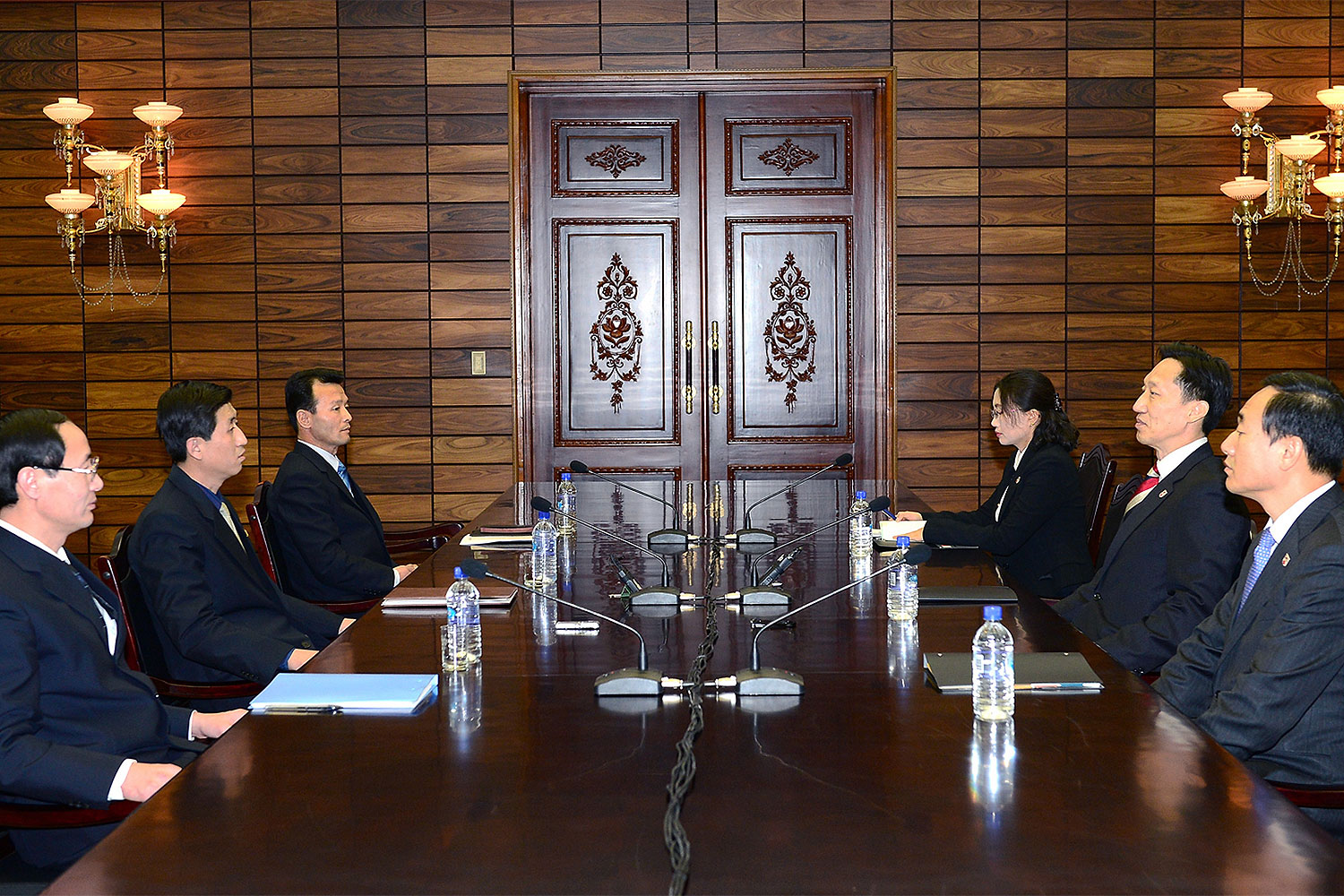
South and North Korea will hold a ‘high-level meeting’ tomorrow, Seoul announced Tuesday. The meet will be held at the border village of Panmunjom at 10 a.m., local time, on Wednesday, spokesperson Kim Eui-do said in a press release. “Though an agenda is not set before the meeting, the two sides are expected to have discussions on major inter-Korean issues including smooth proceeding and the regularization of the family reunions,” it read.
The news comes a week after the two sides agreed to hold family reunions at Mount Kumgang, a resort in North Korea, and just days after Pyongyang then threatened to pull out of the plan if South Korea and the U.S. went ahead with scheduled military drills. The 1950 to 1953 conflict that divided the peninsula also split tens of thousands of families. About 100 of these were briefly united in 2010, but, 60 years after the fighting stopped, many are still waiting.
If they proceed — and that’s a big if since the North is prone to sudden U-turns — it would be a rare bit of good news since South Korean President Park Geun-hye came to power in 2012, promising to improve relations between the old adversaries through a policy she called ‘trustpolitik.’ Trust, though, has been in short supply. North Korea welcomed her tenure by denouncing the “venomous swish” or her skirt and proceeding, last winter, to conduct a series of weapons tests and threaten to rain fire on the U.S.
Indeed, the possibility of a thaw between Seoul and Pyongyang comes as U.S.-North Korean relations are as frigid as ever. Dennis Rodman’s bizarre brand of basketball diplomacy generated little other than headlines, and an American citizen, Kenneth Bae, is still being held in a North Korean labor camp. O Monday, the North rescinded an invitation for a senior U.S. official to visit the country in a bid to secure his release.
Similar talks last year were scrapped less than a day before they were supposed to begin. And with U.S.-South Korea military drills set to proceed later this month, it’s very possible the North will cynically use the talks, and the promise of family reunions, as leverage. So while the latest news from Seoul is positive, it should be treated with caution, to say the least.
More Must-Reads from TIME
- How Donald Trump Won
- The Best Inventions of 2024
- Why Sleep Is the Key to Living Longer
- How to Break 8 Toxic Communication Habits
- Nicola Coughlan Bet on Herself—And Won
- What It’s Like to Have Long COVID As a Kid
- 22 Essential Works of Indigenous Cinema
- Meet TIME's Newest Class of Next Generation Leaders
Write to Emily Rauhala at emily_rauhala@timeasia.com